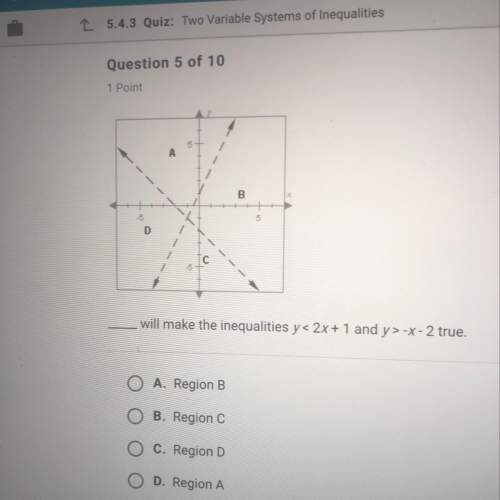
Mathematics, 03.11.2019 08:31 mdndndndj7365
In this question, we study the consequences of trade policies on the automobile market. we assume that cars are all similar on the market (in other words, a car is a homogeneous good). the supply of japanese cars is perfectly elastic at a price pj = 20. moreover, the supply of cars made in the us is qsus = p − 15 for any price larger than 15.
finally, the demand for cars from american consumers is qd = 30 − 1/2p.
1. we now assume that the american economy opens up to trade. as a consequence, american consumers can buy japanese cars. what will be the new equilibrium quantities and prices? how many cars will be imported and how many will be produced domestically?
2. on a new graph, plot the supply of car on the american market, the new equilibrium and the consumer and producer surpluses.
3. what are the new consumer and producer surplus in this new context? who is winning or losing from opening the economy to international trade? what is the overall effect on total welfare?

Answers: 3
Another question on Mathematics

Mathematics, 21.06.2019 16:30
The spring the owner of a sporting good store decreases the price of winter gloves from $10 to $8 each increases the price of swimming goggles from $8 to $10 without doing the math you think the percent decrease in the price of the gloves the same as the percent increase of the goggles explain why or why not
Answers: 1

Mathematics, 21.06.2019 16:30
The hawaiian alphabet has 12 letters. how many permutations are posible for each number of letters?
Answers: 3

Mathematics, 21.06.2019 21:50
Which of the following is the graph of y= square root -x-3
Answers: 1

Mathematics, 21.06.2019 23:30
Which function represents the sequence? f(n)=n+3 f(n)=7n−4 f(n)=3n+7 f(n)=n+7
Answers: 1
You know the right answer?
In this question, we study the consequences of trade policies on the automobile market. we assume th...
Questions


Physics, 14.01.2021 18:30

Mathematics, 14.01.2021 18:30

History, 14.01.2021 18:30

English, 14.01.2021 18:30



Mathematics, 14.01.2021 18:30


Chemistry, 14.01.2021 18:30

Mathematics, 14.01.2021 18:30




English, 14.01.2021 18:30

Mathematics, 14.01.2021 18:30







